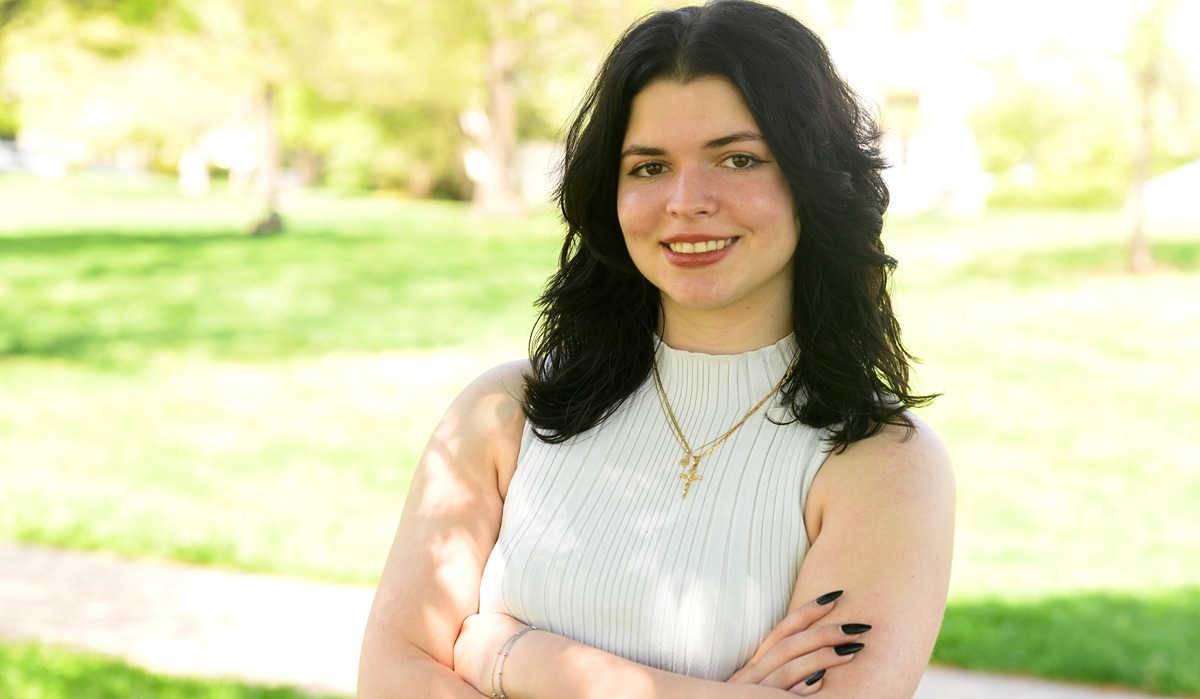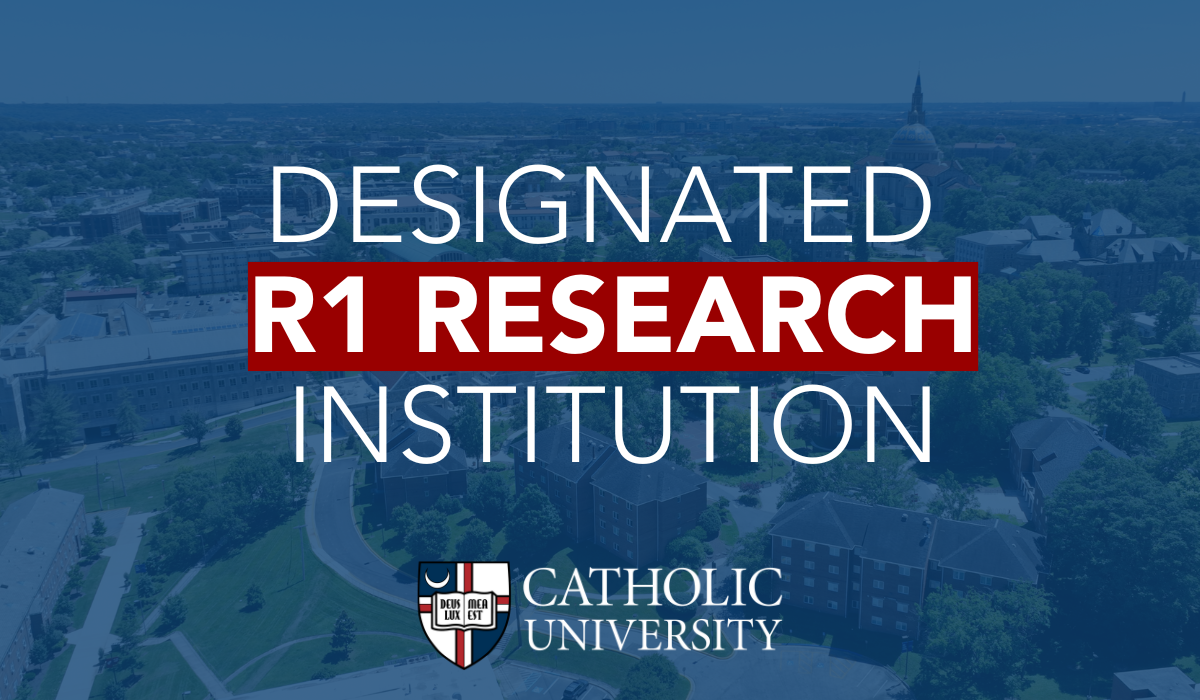Senior Oliva DiMattio, majoring in architecture and sustainability, has her eyes on today’s University Research Day.
DiMattio will present on how sustainable building practices in architecture can help combat the effects of climate change. DiMattio first decided to study architecture due to her love for service and desire to be creative within math and science fields. She looked for the perfect way to blend her love for the arts with something more analytical. She fell in love with the architecture program at Catholic University.
With Pope Francis’s call to care for creation with Laudato si' and Laudate Deum, DiMattio noted that, “He says a lot about environmental protection and caring for the world. Pope Francis also calls for a reduction of overconsumption.”
DiMattio’s research inspiration is further rooted in her advocacy for sustainable building practices. While studying abroad at the University’s Rome Campus, she was on a panel that looked entirely at climate change.
DiMattio highlights that many areas are at great risk of flooding. “We're expected to experience a lot of flooding on the coast,” she said. “
Then comes the real project discussion. DiMattio’s project discussion analyzed how to address the problems with safe building practices and locations. “Our conclusions were that we should use appropriate materials that are really strong and could withstand flooding sea level rise. Choosing to build in locations that make a bit more sense than, directly on the coasts is also really important for sustainability. Buildings too close to the coasts create more soil erosion. So, it is important to watch out for that as well.”
DiMattio added that, “I think there are environmental factors that we all have to consider. I think that's why the minor in sustainability is so good. It gives you that perspective and backs it up with the science that you need to make the correct design decisions.”
DiMattio does not plan to stop researching the most sustainable ways to create buildings amidst the climate crisis. When asked about next steps for the project, she said that, “there are so many innovative ways to make buildings that are adaptable to not only just living on the coast, but other climate change conditions that are coming about like droughts. next steps are finding out more about how we can create the best building. Hey, maybe there's a formula.”



